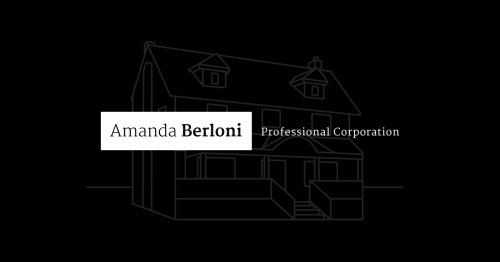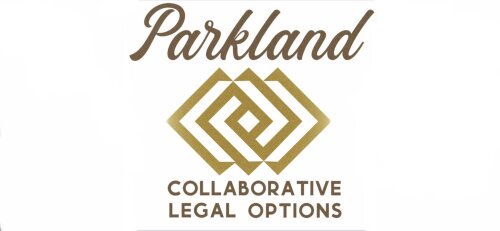Best Employer Lawyers in Canada
Share your needs with us, get contacted by law firms.
Free. Takes 2 min.
Or refine your search by selecting a city:
List of the best lawyers in Canada
About Employer Law in Canada
Employer law in Canada primarily covers the rights and responsibilities of both employers and employees within the employment relationship. This area of law includes various statutes, regulations, and cases that dictate how employment agreements are structured, how workplace disputes are resolved, and the standards for safe and fair working conditions. Federal and provincial laws work in tandem to ensure workplaces are equitable and that employees' rights are respected. Key federal laws like the Canada Labour Code and the Employment Equity Act set out regulations that govern employment standards, health and safety, and human rights across the country.
Why You May Need a Lawyer
There are several scenarios where individuals or businesses might require legal help in the realm of employer law. These include resolving disputes regarding employment contracts, wrongful termination claims, workplace harassment or discrimination allegations, navigating the complexities of employment standards, developing or modifying workplace policies to ensure legal compliance, and understanding obligations under health and safety legislation. Legal advice can help ensure that you understand your rights and obligations and protect you from potential legal pitfalls.
Local Laws Overview
Employment law in Canada is largely governed by provincial legislation, though federally regulated industries follow federal statutes. Key aspects of local laws include minimum wage requirements, working conditions, holiday and leave entitlements, termination notice periods, and severance pay. Each province has an employment standards act, which lays out the minimum rights for employees. Occupational health and safety regulations and human rights acts are also crucial components that protect workers and stipulate employer obligations. You're advised to check the specific laws of your province to ensure compliance.
Frequently Asked Questions
What are my rights as an employee in Canada?
Your rights include fair treatment, non-discrimination, minimum wage, and safe working conditions. Specific rights can vary by province.
What constitutes wrongful dismissal in Canada?
Wrongful dismissal occurs when an employee is terminated without just cause and without reasonable notice or severance pay, breaching the terms of the employment contract.
Can my employer change my job duties without my consent?
Your employer can generally make reasonable changes to your duties unless it constitutes a constructive dismissal, significantly altering the terms of employment unilaterally.
What is constructive dismissal?
Constructive dismissal occurs when an employer unilaterally changes a fundamental term of an employee’s contract, forcing them to resign.
How do I file a workplace harassment complaint?
Complaints can typically be filed with your company’s HR department, followed by the appropriate provincial human rights or employment standards office if unresolved.
What is the minimum wage in Canada?
Minimum wage rates differ by province and are subject to change. Employers must comply with the minimum wage specific to their jurisdiction.
Am I entitled to severance pay?
Severance entitlements depend on your employment contract, duration of employment, and reasons for termination. Specific regulations may apply federally or provincially.
How much notice is required to leave a job?
The notice period you're required to give depends on your employment contract or company policy. Review your contract for specific terms.
Do employment laws apply to remote workers?
Yes, employment laws apply to remote workers. However, the jurisdiction may depend on where the employee resides or where the company is based.
Can an employee refuse work due to safety concerns?
An employee has the right to refuse work they believe is unsafe under occupational health and safety legislation in Canada.
Additional Resources
Some valuable resources for individuals seeking more information about employer law in Canada include the Canadian Labour Program, provincial labour boards, and organizations such as the Canadian Human Rights Commission. Non-profit organizations supporting workers' rights and legal aid services in your province can also provide guidance and assistance.
Next Steps
If you find yourself in need of legal assistance related to employment matters, consider scheduling a consultation with a lawyer specializing in employment law. Look for legal firms that offer initial consultations to discuss your situation and potential legal strategies. You can also contact your local legal aid organization for support if you have limited financial resources. It's crucial to gather all pertinent documentation before meeting with a lawyer to ensure a comprehensive review of your case.
Lawzana helps you find the best lawyers and law firms in Canada through a curated and pre-screened list of qualified legal professionals. Our platform offers rankings and detailed profiles of attorneys and law firms, allowing you to compare based on practice areas, including Employer, experience, and client feedback.
Each profile includes a description of the firm's areas of practice, client reviews, team members and partners, year of establishment, spoken languages, office locations, contact information, social media presence, and any published articles or resources. Most firms on our platform speak English and are experienced in both local and international legal matters.
Get a quote from top-rated law firms in Canada — quickly, securely, and without unnecessary hassle.
Disclaimer:
The information provided on this page is for general informational purposes only and does not constitute legal advice. While we strive to ensure the accuracy and relevance of the content, legal information may change over time, and interpretations of the law can vary. You should always consult with a qualified legal professional for advice specific to your situation.
We disclaim all liability for actions taken or not taken based on the content of this page. If you believe any information is incorrect or outdated, please contact us, and we will review and update it where appropriate.
Browse employer law firms by city in Canada
Refine your search by selecting a city.
















